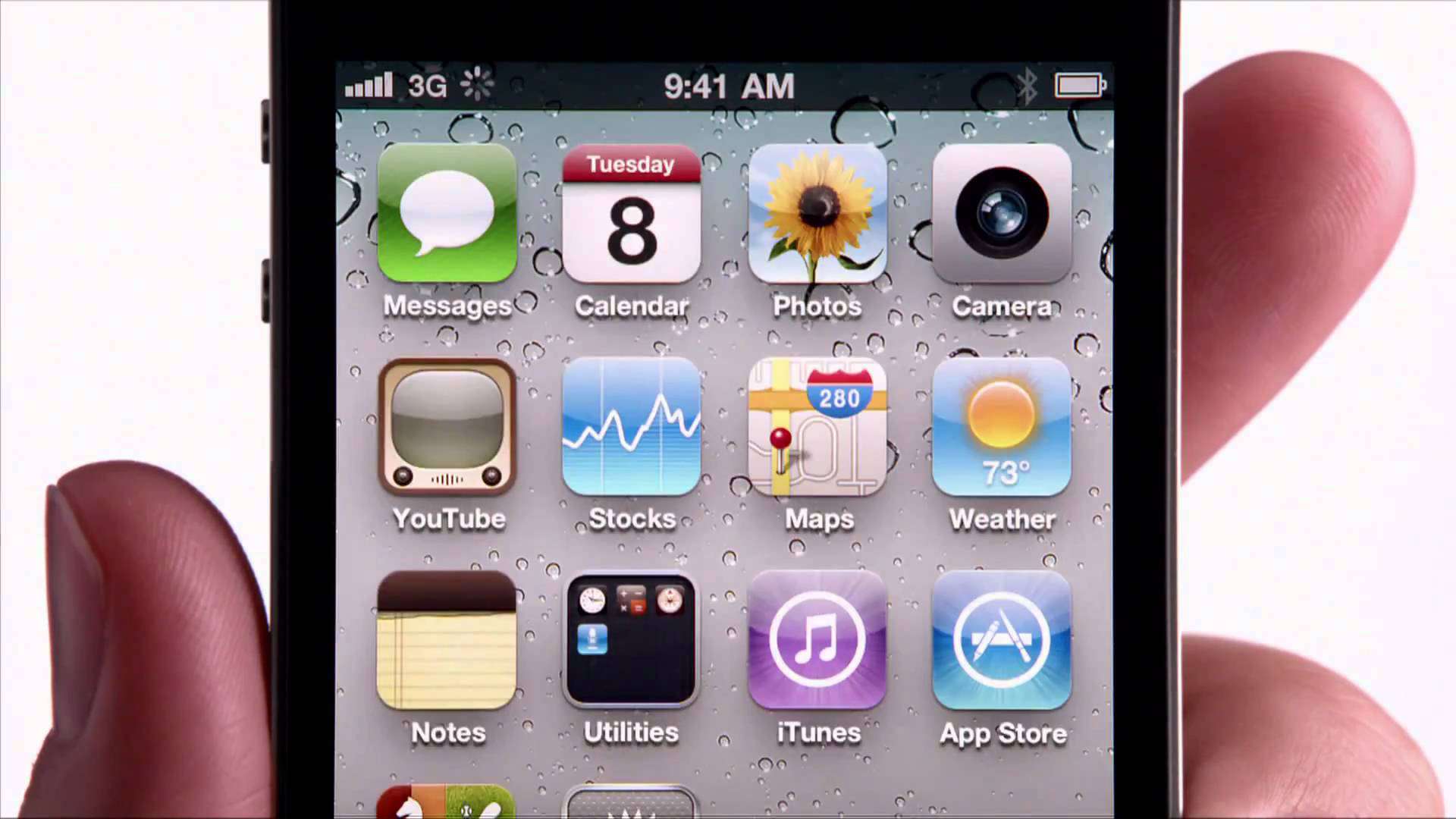 June 24, 2010: Apple’s fourth-generation smartphone, the iPhone 4, goes on sale.
June 24, 2010: Apple’s fourth-generation smartphone, the iPhone 4, goes on sale.
While the device is perhaps most remembered for the infamous “Antennagate,” it is otherwise a pretty great handset. In its first weekend, it sells 1.7 million units. That’s a major triumph for Apple.
iPhone 4 launch
Apple CEO Steve Jobs introduced the iPhone 4 at the company’s Worldwide Developers Conference a few weeks earlier on June 7, 2010. At the event, Jobs joked about the fact an iPhone 4 prototype — sold to tech news site Gizmodo after an Apple software engineer lost it in a Silicon Valley bar — had already been torn down, with the results published online.
Jobs boasted about the iPhone 4’s “all-new design.”
“Now, stop me if you’ve already seen this,” he said, drawing laughter and applause from the WWDC crowd. “Believe me, you ain’t seen it! You’ve gotta see this thing in person. It is one of the most beautiful designs you’ve ever seen.”
The final iPhone released during Jobs’ life, the iPhone 4 also became the last one to debut at a WWDC. (Starting the following year, Apple shifted its iPhone launch to the fall and staged its own special event.)
iPhone 4 features
On June 24, consumers finally got their hands on that gorgeous design, which Jobs called “one of the most beautiful things we’ve ever made.”
The iPhone 4 followed the iPhone 3GS. Appearance-wise, it stuck with the 3.5-inch form factor of previous devices. However, this was a reimagined iPhone. Its flatter, Braun-inspired design measured a whopping 24% thinner than its predecessor.
In terms of features, the iPhone 4 introduced users to FaceTime, Apple’s video chat app. It also boasted an upgraded 5-megapixel camera with LED flash, VGA-quality front-facing camera and a significant Retina display screen-resolution upgrade — with four times the number of pixels as its predecessor.
Antennagate and other problems
The iPhone 4 wasn’t perfect, of course. Some users reported dropped calls, which fueled the aforementioned tech “scandal” dubbed “Antennagate.” Apple’s ham-handed response to the legitimate problem basically amounted to “you’re holding it wrong.”
The company’s statement on the matter drew widespread ridicule.
“Gripping any phone will result in some attenuation of its antenna performance with certain places being worse than others depending on the placement of the antennas,” Apple said. “This is a fact of life for every wireless phone. If you ever experience this on your Phone 4, avoid gripping it in the lower left corner in a way that covers both sides of the black strip in the metal band, or simply use one of many available cases.”
The first big controversy in iPhone history, Antennagate resulted in Jobs cutting short a vacation to host a press conference about the problem. An eventual class-action lawsuit dragged on for two years.
The device’s power-hungry, first-gen Retina display also proved problematic, causing the phone to chug along slowly at times. Apple tried to compensate with a RAM boost (to 512MB), an improved processor (the Apple A4) and longer battery life.
iPhone 4 and its awesome successor
This gorgeous device’s successor — the iPhone 4s, released the following year — fixed a lot of the iPhone 4’s problems. (The 4s might go down in history as my favorite iPhone as a result.) But the iPhone 4 remains a pretty darn great handset in its own right.
And, coming the same year as the first iPad, it was a great culmination to the career of Steve Jobs.
Do you have fond or less-than-fond memories of the iPhone 4? Leave your comments below.


